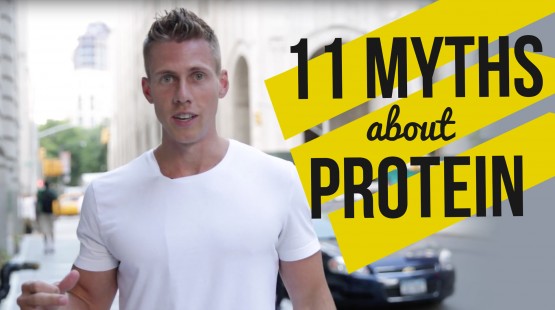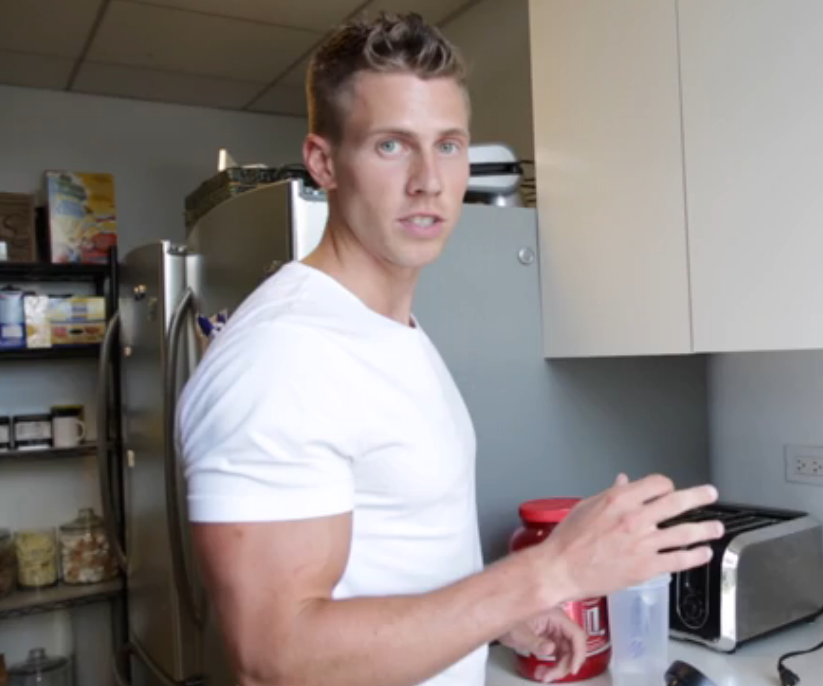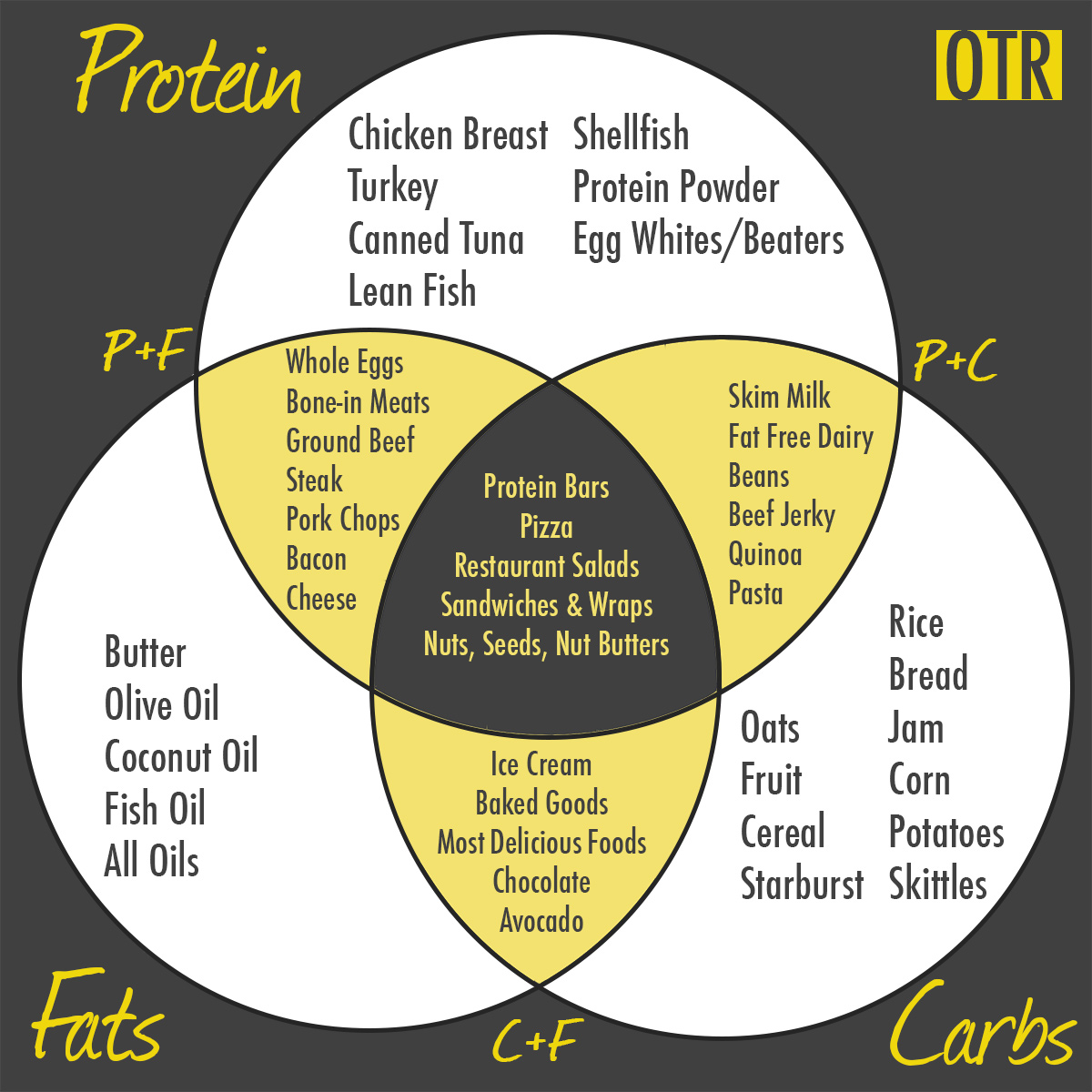11 Protein Myths Shattered
Posted by Michael Vacanti

.
Can I digest more than 30 grams in one sitting?
Will my kidneys explode?
How much protein should I eat for maintenance?
Find Out Here:
1. Should I eat casein protein before bed?
Consuming a slow digesting protein before bed, like casein powder or a dairy food source, will increase muscle protein synthesis while you are asleep.
While this may help you build more muscle or more easily retain muscle while losing fat, it probably isn’t necessary.
The impact of a pre-bed protein source pales in comparison to dozens of other things you should be doing (hit your macros, get enough sleep, training with intensity, etc).
So, while you certainly can eat casein protein before bed, it probably isn’t necessary.
2. Do I really need 1g of protein per pound of bodyweight?
I have found many coaching clients, often women, struggle to reach one gram per pound of bodyweight.
Don’t worry, you probably don’t need to be eating that much protein. When dropping body fat, keeping protein high is most important when maintaining every last drop of muscle is a huge priority.
For most of us, keeping protein relatively high will allow us to retain almost all lean mass while also keeping us relatively full.
Closer to 1g per pound of lean body mass is probably sufficient, but you can check out question 11 for more detail!
3. I don’t want huge muscles.. why do I need protein?
First, no one in the history of man kind accidentally got too muscular.
It is really, really hard to gain muscle. And eating excess protein doesn’t cause muscle growth.
Rather, eating adequate protein while in a calorie surplus, training with intensity and recovering properly (over many months or years) is what builds muscle.
So, I promise that extra serving of chicken breast won’t make you green and jacked and angry.
4. Are protein shakes good?
In general, protein shakes aren’t better or worse than whole food sources.
I recommend protein shakes because they are a cost effective protein source, they generally have few tag along carbs and fats, and they are more convenient than cooking a pork tenderloin.
So, while you probably shouldn’t live off them, supplementing with powder to hit your macros certainly is not a bad idea.
5. What if I’m not working out.. then taking a shake makes no sense right?
First, you don’t take a protein shake.
They aren’t steroids, and you aren’t a pro wrestler.
You drink a protein shake just like you eat Cherry Garcia or snort adderall. I mean, err, you get what I’m saying.
In all seriousness, your body needs protein whether or not you are strength training.
And just like you eat chicken whether or not you’re strength training, you can use protein powder to hit your protein goals with our without heavy weights in your life.
6. I heard you can only absorb 30 grams of protein in one sitting
This myth was born from the fact that 30 grams of protein is enough to sufficiently stimulate muscle protein synthesis.
Fortunately, for carnivores and Chipotle addicts everywhere, whether we absorb protein isn’t related to MPS. Your body still digests protein in quantities greater than 30 grams.
Digestion simply takes longer when we eat a larger meal.
So, continue to order double meat with boldness and vigor and the knowledge that all 75 grams will get put to use.
7. How important is protein after lifting weights?
Years ago, the obsessive need for an immediate post-workout shake was deemed necessary.
Recent science has shown us that we aren’t missing out on much by waiting a little while to enjoy post-workout calories.
That being said, I-don’t-really-lift-weights researchers have swung the pendulum a bit too far away from the frantic gym bro mentality.
Granted, their net impact is probably positive – based solely on the decrease in panic attacks during the calorie-less period between that last set of cable flies and the arrival of shrimp cocktail at your girlfriend’s grandma’s 92nd birthday party.
Where was I… ah, yes.
Post workout nutrition isn’t life or death, but it does matter.
If your options are to have a shake or food immediately postworkout versus waiting 90 minutes to finish grilling, I suggest you slam the shake. Because what jacked dude ever didn’t take a post workout shake?
8. Is quinoa a good source of protein?
I’m glad you asked this, because the answer is no. It’s not.
Quinoa, nuts, and whole grains are all poor sources of protein. Meaning, they derive most of their calories from either carbs or fats.
Here is a good article discussing top protein sources.
And this venn diagram may also help you!
9. Doesn’t protein hurt your kidneys??
A high protein diet isn’t a good idea for someone who already has kidney issues.
However, based on all available evidence, I don’t see any correlation between consuming 1 – 1.5g of protein per pound of lean mass and kidney health.
This myth is further perpetuated by the fact that creatinine levels are high in the urine of a person with kidney disease. Creatinine levels are also high in the urine of a person eating a high protein diet.
But that’s like saying… Eric Cartman is short, and he is weak. And Tyrion Lannister is short, therefore he must be weak.
Which is utterly untrue because Tyrion is a badass.
Got it?
10. So wait.. if a food is a good protein source, but it has other macros in it, should I count those as well?
Yes, you should count the proteins, carbs and fats in any food that you eat (if you are counting).
So, even in a food that is relatively high protein like powder, you should count the few grams of carbs and fats present in that serving.
Or just abandon all this fitness stuff and eat ice cream all day. That isn’t a bad option either.
11. Alright, can you just tell me how much protein I should eat?
I can give you high level guidance, but know that you can probably get away with lower intake or you might require higher intake depending on many factors including the size of your surplus or deficit.
For Fat Loss: 1 – 1.5 grams per pound of lean mass
For Muscle Gain: 1g per pound of body weight (advanced discussion of protein needs for muscle gain in this video)
For Maintenance: You can probably go as low as 0.6 – 0.7 grams per pound of lean body mass.
Further Reading:
How To Count Your Macros (A Comprehensive Guide)
What Those Scale Weight Fluctuations Really Mean
12 Things I Learned During My First Year As An Entrepreneur


Chris
What protein shake brands do you recommend? What consideration should be taken into account when choosing between brands?August 18, 2015 at 8:49 pm |